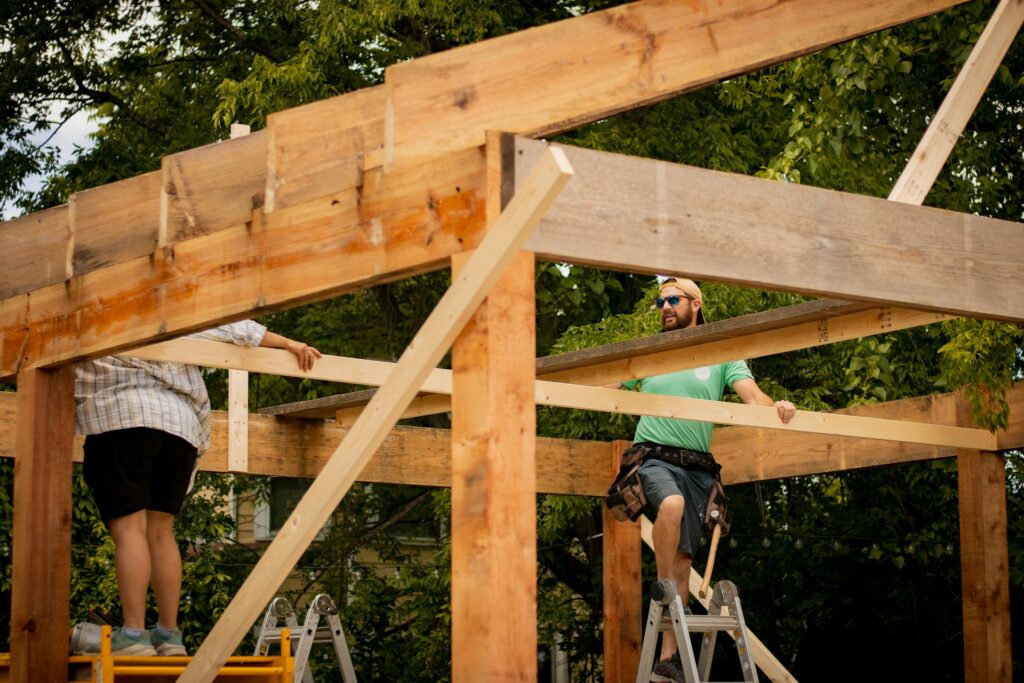In the realm of commercial construction, understanding the roles and responsibilities of commercial contractors is crucial for a successful project. Commercial contracting encompasses a broad range of services and tasks, each vital to the timely and efficient completion of large-scale projects. This article delves into the essentials of commercial contractors, their functions, and best practices for ensuring a smooth contracting process.

What Are Commercial Contractors?
Commercial contractors are specialized professionals who manage and execute construction projects for commercial properties. Unlike residential contractors, who focus on homes and smaller-scale projects, commercial contractors handle larger and more complex ventures such as office buildings, shopping malls, hotels, and industrial facilities.
Key Responsibilities of Commercial Contractors
- Project Management: Commercial contractors oversee the entire construction process, from initial planning to project completion. This includes managing budgets, timelines, and coordinating with various stakeholders such as architects, engineers, and subcontractors.
- Permits and Regulations: Ensuring that all necessary permits and approvals are obtained is a critical aspect of commercial contracting. Contractors must navigate local building codes and regulations to ensure compliance and avoid costly delays.
- Subcontractor Coordination: Commercial contractors often work with specialized subcontractors for tasks like electrical work, plumbing, and HVAC installation. Effective coordination and communication with these subcontractors are essential for maintaining project schedules and quality.
- Quality Control: Ensuring high standards of workmanship and materials is a primary responsibility. Commercial contractors must implement quality control measures to meet or exceed industry standards and client expectations.
- Budget Management: Keeping the project within budget is crucial. Commercial contractors are responsible for managing costs, handling unforeseen expenses, and making adjustments as necessary to avoid budget overruns.
- Risk Management: Identifying and mitigating potential risks is a key part of the role. This includes addressing safety concerns, managing project delays, and handling any legal issues that may arise.
Best Practices for Successful Commercial Contracting
- Clear Communication: Open and transparent communication with all project stakeholders is essential. This helps in setting clear expectations, addressing concerns promptly, and ensuring that everyone is on the same page throughout the project.
- Detailed Planning: Comprehensive planning and detailed project schedules help in anticipating potential challenges and ensuring that all aspects of the project are accounted for. A well-defined plan can prevent delays and cost overruns.
- Thorough Vetting: Choosing the right commercial contractor is critical. Conducting thorough research, checking references, and reviewing past projects can help in selecting a contractor with a proven track record of success.
- Regular Inspections: Periodic inspections and progress reviews help in monitoring the project’s status and ensuring that it adheres to the established standards and timelines. Addressing issues promptly can prevent minor problems from escalating.
- Contractual Clarity: Ensuring that all terms and conditions are clearly outlined in the contract helps in avoiding disputes and misunderstandings. This includes specifying project milestones, payment schedules, and responsibilities.
- Leveraging Technology: Utilizing construction management software and other technological tools can enhance efficiency, streamline communication, and provide real-time updates on project progress.
Conclusion
Commercial contracting plays a pivotal role in shaping the landscape of modern cities and business environments. By understanding the responsibilities of commercial contractors and adhering to best practices, businesses and property owners can ensure the successful completion of their construction projects. Whether embarking on a new build or renovating an existing property, a well-executed commercial contracting process is essential for achieving the desired outcomes and delivering value.
 AyRoo
AyRoo